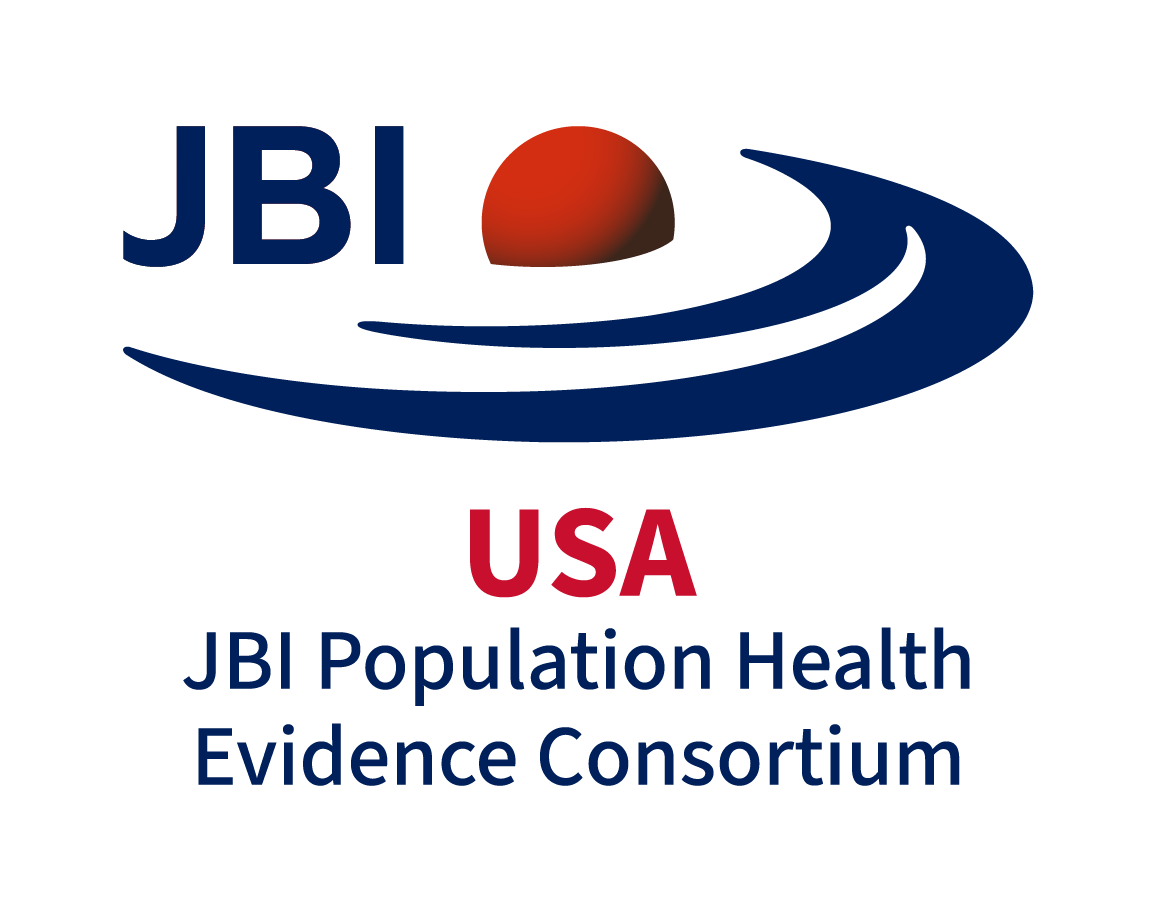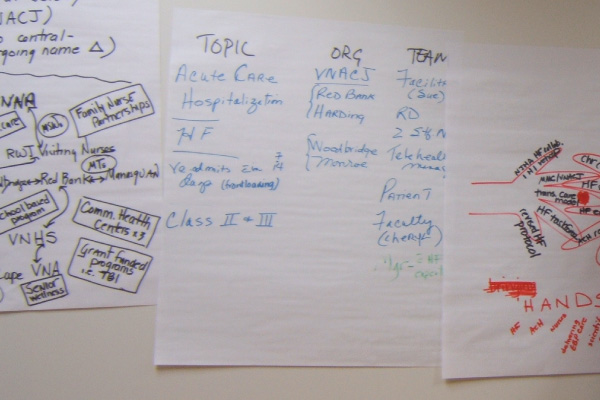The JBI Population Health Evidence Consortium, established in 2004, is a global evidence network. It offers a wide range of programs.


Research Initiatives
The consortium believes that safe and quality practice involves knowledge synthesis that concentrates on all best available evidence to assist practitioners and decision-makers in care delivery. Its approach embodies the scholarship of integration, which gives meaning to isolated facts and puts them in perspective.
To date, the consortium has generated a total of 33 systematic reviews including:
- 34 publications by core faculty in refereed journals
- 3 published textbooks
- An AJN Book of the Year Award for the work titled “Comprehensive Systematic Review for Advanced Nursing Practice” (Holly, Salmond, Saimbert)
- 3 published book chapters in texts of evidence-based care
- 30 national and international presentations specific to the work of the consortium and comprehensive systematic review
Workshops and Consultations
The consortium offers seasonal workshops in the form of Institutes for Comprehensive Systematic Review.
Consultations
Designed to facilitate one-on-one assistance with any aspect of conducting a systematic review, office hours are available to students, faculty, and staff of Rutgers School of Nursing. Appointments are required. Please send an email at least one week ahead of schedule.
Instructor & Contact Info
Yuri T. Jadotte, MD, PhD, MPH
Professor, Division of Nursing Science
Deputy Director, The JBI Population Health Evidence Consortium
nest@sn.rutgers.edu (preferred)
Phone: 973-972-8517
Additional Resources
Additional hands-on assistance with the search strategy component of systematic reviews is available at the Rutgers University Library, and is provided by Rutgers librarians trained in systematic review methodology at JBI P-HEC.
Systematic Review Protocols
- Estimating the Burden: A Systematic Review Protocol on Hypertension Prevalence in Filipino Americans
- Effectiveness of interventions in promoting resilience among new graduate registered nurses – Umbrella Review Protocol
- Facilitators and Barriers to Adoption and Maintenance of Healthy Diets and Physical Activity among the Serious Mentally Ill, From Patients’, Provider’s and Families Perspectives: A Qualitative Systematic Review Protocol
- Effectiveness of evidence-based interventions in promoting resilience among nursing students in 1 all years of study: an umbrella systematic review protocol


Our Goals
- Identify areas where health professionals most urgently require summarized evidence on which to base their practice.
- Conduct and facilitate systematic reviews of international research.
- Identify the need for and promote the conduct of multi-site research studies in areas where good evidence is not available.
- Prepare easy to read summaries of best practice in the form of Best Practice Information Sheets based on the results of systematic reviews.
- Design and conduct targeted dissemination activities in areas where good evidence is available.
- Promote broad dissemination strategies to ensure that findings are made available to the profession and to all levels of health care systems, governments, and service provider units.
- Promote broad dissemination strategies to ensure findings are made available to health care consumers.
- Evaluate the effects of selected Best Practice Information Sheets on practice variability, health outcomes and cost.
- Design, promote and deliver short courses in evidence-based practice for clinicians, researchers, managers, lecturers, teachers and students.
- Offer direct fee-for-service consultancies to health service providers to develop customized evidence-based practice training and evidence-based policy and procedure manuals.
Members
Senior Methodologists
Susan W. Salmond, EdD, RN
Co-Director
Cheryl Holly, EdD, RN
Co-Director
Yuri T. Jadotte, MD, PhD, MPH
Deputy Director
Jason Slyer, DNP, RN
Assistant Director for Education – Pace University
Faculty
Rutgers University
Pace University
- Cathy Concert, DNP
- Priscilla Worral, PhD
- Jo-Ann Singleton, PhD
- Marie Londrigan, PhD
- Aileen Fitzpatrick, DNP


Funded Projects
The Center identifies areas where health professionals most urgently need summarized evidence and promotes dissemination strategies once the findings are available.
Center Awards
- 2017 JBI Evidence Synthesis Award
- 2016 JBI Evidence Synthesis Award
- 2016 JBI Colloquium Best Paper Award for the work titled “Using the Results of a Qualitative Systematic Review for Quantitative Instrument Validation” (Salmond, Holly, Jadotte)
- 2015 JBI Evidence Synthesis Award
- 2014 Theresa Pellino Research Award
Holly, C. Rittenmeyer, L. Weeks, S. (2014). Evidence Based Clinical Audit Criteria for the Prevention and Management of Acute Delirium in the Post-operative Patient with a Hip Fracture. Orthopedic Nursing. Jan-Feb;33(1):27-34; - 2014 JBI Colloquium Best Paper Award for the work titled “The Effectiveness of Non-Pharmacological Multi-Component Interventions for the Prevention of Delirium in Non-Intensive Care Unit Older Adult Hospitalized Patients: A Systematic Review” (Thomas, Smith, Forrester, Heider, Jadotte, Holly)
- 2011 JBI Evidence Synthesis Award

Contacts
Cheryl Holly, EdD, RN, ANEF
Co-Director
hollych@sn.rutgers.edu
Susan W. Salmond, EdD, RN, ANEF, FAAN
Co-Director
salmonsu@sn.rutgers.edu
The JBI Population Health Evidence Consortium
Rutgers School of Nursing
Stanley Bergen Building
65 Bergen St., Suite 1127
Newark, NJ 07101
nest@sn.rutgers.edu
(973) 972-9239
